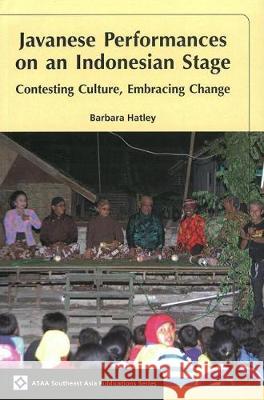Javanese Performances on an Indonesian Stage: Celebrating Culture, Embracing Change » książka
Javanese Performances on an Indonesian Stage: Celebrating Culture, Embracing Change
ISBN-13: 9789971694104
During the dramatic economic and social transformation of late twentieth-century Indonesia, theatre performances in Central Java featured a familiar cast of rulers, nobles, clown servants and ordinary people. However, these presentations were not a repetition of age-old cultural 'traditions'. Instead, by stretching the framework of Javanese theatrical convention, theatre troupes challenged dominant cultural and political values. As political pressures intensified in the final months of the New Order regime, their witty, critical performances drew enthusiastic, oppositionist crowds. The dismantling of repressive state control after the fall of Suharto in 1998 diminished interest in political critiques from the stage, and growing economic weakness caused patronage and sponsorship to dry up. By 2003-04, however, a revival was underway as performers engaged with the politics of regional autonomy and democratisation, and actors responded to the devastating Yogyakarta earthquake of 2006 by staging shows in the worst-affected areas to help sustain community spirit and pride in local culture. Barbara Hatley's account of more than thirty years of theatre activities and social change shows how performers and audiences have adapted, resisted, incorporated and survived. As Indonesian society evolves, Javanese performances continue to engage with ever-changing social contexts, expressing the dynamic resilience and sense of identity of those who stage and watch them.











